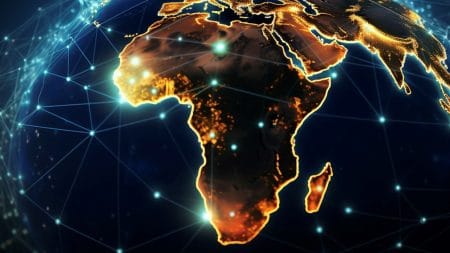Embracing sovereignty-as-a-service could help Africa retain data value locally, boost national security, and align artificial intelligence (AI) with African ethics and values, according to Andile Ngcaba, executive chairman and co-founder of Convergence Partners and president of the Digital Council Africa.
Speaking at the Conext Conference organized by the Digital Council Africa last week, Ngcaba urged governments, businesses, and citizens to take a proactive role in building Africa’s AI capacity.
“We need to make sure we are not spectators but part of it,” he said. “Africa must develop, deploy, govern, and control its own AI systems rather than rely on foreign or third-party platforms.”
The Case for Sovereign AI
Ngcaba emphasized that AI sovereignty—where countries maintain control over their digital infrastructure, data, and algorithms—is essential for protecting Africa from “digital colonisation.”
He described sovereignty-as-a-service as a cloud-based model that allows nations to manage AI infrastructure and data locally, ensuring privacy, security, and reduced surveillance risks.
“Digital sovereignty is paramount for Africa’s future,” he said. “Without it, foreign entities can access and monetise Africa’s data without consent or benefit.”
Ngcaba added that governments can safeguard national data and reduce dependency on foreign digital interests by prioritising sovereign cloud policies and establishing local AI infrastructure.
He cited countries like Estonia, the UAE, and Singapore as examples of how national digital sovereignty can coexist with global AI platforms, fostering both independence and collaboration.
Balancing Regulation and Innovation
The growing push for AI sovereignty reflects broader anxieties across African governments. Dr. Mark Nasila, Chief Data and Analytics Officer at FNB Risk, noted during last year’s SingularityU South Africa Summit that policymakers face a “sleepless nights dilemma”: how to regulate AI to mitigate risks without stifling innovation or deepening inequalities.
Ngcaba believes national AI policies, clear sovereignty goals, and investment in critical sectors can help governments strike the right balance.
“Governments can regain control over national data and digital initiatives, strengthening economic independence and political stability,” he said. “Businesses, in turn, can operate within a secure environment that protects against foreign data exploitation and reduces infrastructure costs.”
Empowering Youth through AI
As part of the Digital Council Africa’s broader mission to build African AI capacity, Ngcaba invited young innovators to participate in the Model Context Protocol (MCP) Hackathon, an initiative encouraging youth to build secure and purposeful AI agents.
The hackathon challenges participants to develop and deploy production-ready MCP servers that expose callable tools to AI agents—fostering practical problem-solving and digital literacy among Africa’s next generation of technologists.
“This is how Africa can take ownership of its digital destiny—by empowering youth to build the tools that will shape our future,” Ngcaba said.
Building Africa’s Digital Independence
As Africa’s digital economy expands, the concept of sovereignty-as-a-service may prove pivotal in ensuring that data, innovation, and value creation remain within the continent’s control.
By blending policy reform, local infrastructure, and youth innovation, Ngcaba and other experts argue that Africa can establish a secure, ethical, and self-determined AI ecosystem—one that reflects its values while remaining globally competitive.






